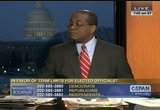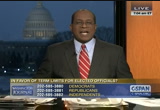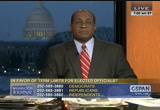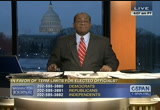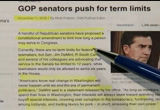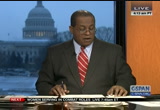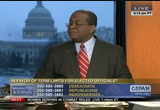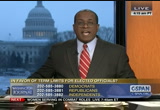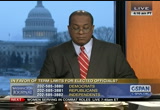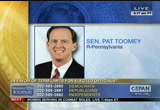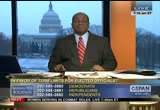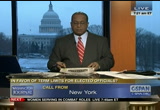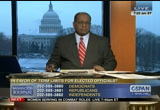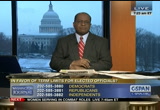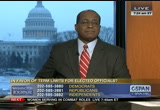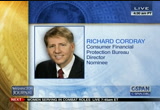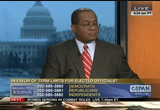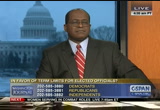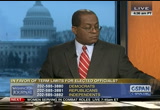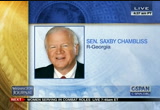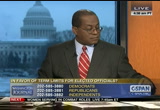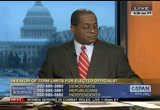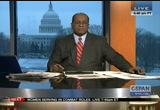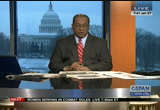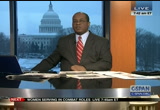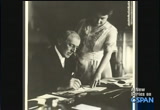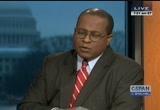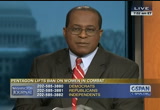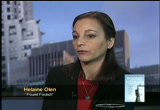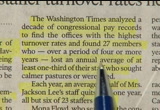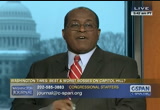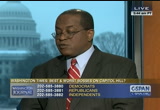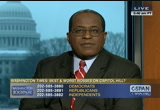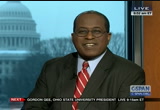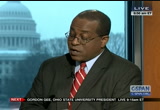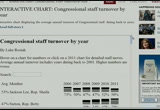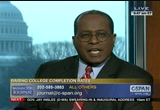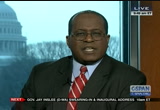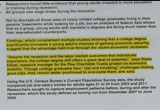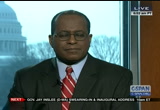tv Washington Journal CSPAN January 26, 2013 7:00am-10:00am EST
7:00 am
7:01 am
limits for all elected officials. termresident already has limits. your governors, senators, mayors, city council, dog catcher, tax collector. are you in favor of term limits, yes or no? here are the numbers. host: you can also reach out to us by social media. host: i want to show you some of the numbers from the recently released gallup poll. they ask americans support for establishing term limits for federal lawmakers.
7:02 am
suppose on election day you could vote for key issues as well as candidates. or againstote for the number of terms congress and senate can serve? nationally among adults those voting for term limits are in the 75% range. those who say they would vote against term limits, 21%. those who had no opinion, 5%. breaking it down among political parties, republicans, those voting for, who say they would vote for term limits, 82% of republicans questioned in this gallup poll, 82% say they would vote for term limits. 15% say they would vote against. 3% say they have no opinion. independence, 79% say they would vote for term limits. 17% say they would vote against. 4% say they have no opinion. and among democrats, 65% say that they would vote for term limits. 29% say they would vote against.
7:03 am
5% say they have no opinion. again, if you have an opinion and you'd like to share it with our c-span audience and the rest of the country, the numbers, 202-585-3880 for democrats. 202-585-3818 for republicans. and independence, 202-585-3882. our first call comes from joe in arlington, texas. our line for republicans. joe, in if favor or opposed to term limits for e rented officials? -- elected officials. caller: i'm in favor of it. when our system was first set up by the founding fathers, they imagined or foresaw businessmen and leaders in the community coming up to washington for maybe one term, two terms at the most, then going back to their districts and becoming businessmen again. somebody else would follow him in. i don't think they ever foresaw a lot of the people becoming career politicians, living up
7:04 am
there for 30, 40 years. i think we need to go back to the system where we have a complete turnover, over and over again, every one to two terms, and let other people get up fresh ideas, fresh attitudes. i think you lose a lot of the gridlock. host: you still with me? caller: yes. host: the president is limit to two terms. what would limit senators and congressmen? caller: well, senators, i would say two terms because they're up there for six years, or four years. and the congressmen, say, no more than four. host: all right. joe, in if arlington, texas. thanks for your call. we're moving on to mark in brighton, massachusetts for independence. good morning. caller: good morning. absolutely in favor. they would be -- i think p t
7:05 am
would slow down the lobbying activity. that's my concern, the lobbyists learn how to control the funding, really has a huge impact on policy. so i think that would be -- would definitely slow it down. they would have to rework, basically buying the politicians, every two or three terms which would slow down the effect and even the odds with people who don't have all the money and all the influence and all the power. so it would definitely slow that process down. i would also expand it out to the bureaucracy. you have a lot of people who are in the bureaucracy in a lot of these agencies that have been there for 20, 30, 40 years. they're completely, you know, entrenched. so i would extend it even out to having some revolving part of some of the bureaucracy that runs the country behind the scenes. as well as the politicians. host: mark from brighton, massachusetts, brings up
7:06 am
lobbyists. we have this item by rich robinson we got online. it says term limits help lobbyists at the expense of good government. he writes voters love term limits for politicians bu they shouldn't. the notion public service should be held only for utilitarian purposes for a short period of time and that these limits create better government is misguided and fundamentally flawed. the proof can be seen locally in the current mire that represents our public policy: this is a changed opinion. once an advocate for this type of reform, in quotes, the effective term limits have been so devastating at every level of government that it should be relegated to the trash heap of history. we'll get back to that in a few seconds. we're going to raymond in victoria, texas, in our line for democrats. in favor or opposed to term limits for elected officials?
7:07 am
caller: i'll be in favor of term limits definitely. host: why is that? caller: the main reason is i think with most politicians, they get entrenched in their personal beliefs. they may not publicly admit it, but we are all human. and i understand the inner workings of our minds. and a lot of times we get entrenched. and what's the difference between me as a lay person verse a politician as far as human behavior is concerned. so i'm in favor of term limits, definitely. host: next up, suzanne in summerset, massachusetts, for republicans. you're on "washington journal." go ahead. caller: yes. good morning. it's unusual for democrats and republicans to agree on something. but i think that most people are in agreement that term limits
7:08 am
are necessary. in support of the caller just prior to me, i think that people will become entrenched in their own personal beliefs. i think after a long period of time, they forget that they are supposedly representing their constituents. they begin to represent themselves. i think that's not a good thing. and i do believe that maybe two to three terms would be, oh utmost for both congressmen and senators. i know once we had a president that got to a third term. that would have been, i believe, president eisenhower. and there has been some talk of elongating the presidential term to a third term. i think that would be a grave mistake as well. host: why is that? caller: again, because instead
7:09 am
of allowing a change, we are stuck. he did not win the election by a landslide. the people's vote, the electoral college is a very different representation, i believe, than if you look at the numbers of the people voting. therefore you have to understand that, yes, he did win, but what about the other 48 or 49% of america? we deserve to have our beliefs represented after a period of time. i think to allow a third term would be a mistake. host: more from an item that we got online by rich robinson, a political consultant in silicon valley, out in california. he writes that term limits came about as recognition that jerry manneddering by the legislature virtually ensured lifetime jobs
7:10 am
of elected officials. the recent reform that provided an independent commission to redraw lines without any recognition of party affiliation has solved that problem. in essence, term limits in a free and fair election have always been an option for voters. we should return that power to them especially in california. locally, in silicon valley, we should repeal all term limits and put our elected officials back in charge of the bureaucrats who rue lienity shine them on, as well as the lobbyists who potentially con -- whose potentially conflicted experience -- expertise, rather, has become a necessary evil in short, term limits is a failed experiment proving not all ideas regarding the government reform are good ideas. are you in favor or opposed to term limits for members of congress or people elected locally? the next call comes from bryan in salt lake city on our line for independence. bryan, go ahead.
7:11 am
caller: do you guys ever see "distinguished gentleman" with eddie murphy where he just runs around, he's a con artist, and here he is, it's all legit in washington. the lobbyists are tearing up our country, and they're just spending all of our money. and why ha washington got some f the richest -- right there in washington, d.c. and the state department, you got to clean house on that. you get rid of the lobbyists and the state department needs cleaned out. host: on to edward in johnstown, pennsylvania, for democrats. go ahead. caller: hello. good morning. thanks for c-span. host: john, are you -- sorry. edward, in favor or opposed to term limits? caller: i'm in favor of the people voting them out after one or two terms. this 32 years and 36 and 40 years in the senate and the house, it's ridiculous.
7:12 am
a good example of that is trent lott. i watched him this morning on fox news. he's 70 years old, and he says -- he just went back to work. with, he retired from the senate early to avoid a law that said he couldn't -- go join a lobbying firm until five years after his term expired. well, he quit early just to avoid that law. so now he's out there, he says 70 years old, and he just went back to work and he's going to work. host: we got this from cnn politics, got this online. gop senators push for term limits is the headline. a handful of republican senators have proposed a constitutional amendment to limit how long a person may serve in congress. currently there are no term limits for federal lawmakers. but senator jim demint and several of his colleagues advocating service in the senate be limited to 12 years while
7:13 am
lawmakers would only be allowed to serve six years in the house. this is an effort that was put forth two years ago. americans, they say, no real change in washington will never half until we end the era of permanent politicians, demint said in a statement released by his office. as long as members have the chance to spend their lives in washington, their interests will will always skew towards spending taxpayer dollars to buy off special interests covering over corruption in bureaucracy, fundraising, relationship building among lobbyists, and trading favors for pork. in short, amassing their own power. the thoughts of senator jim demint from two years ago. senator demint has retired from the senate and is now running the heritage foundation here in washington, d.c. tom in florida on our line for republicans. you're in favor or opposed to term limits?
7:14 am
caller: i'm opposed to it, robb. it just seems the longer these guys stay in office, the more self-empowered they get for their own thoughts and the way things work. these guys go in and they're ok in the beginning, but when they leave, they're very, very, very rich men. they're very privy to what's going on in the country, as far as government contracts and everything, and they get to invest their money in a certain way. harry reid was worth $300,000 when he first went into the senate, and today he's one of the richest men in the senate. how does that happen? know? so i'm really opposed. these guys spend any more than eight years in there. host: all right. homestead, florida on the line for independence. kevin, you're on "washington journal." caller: good morning. thanks for taking my call. host: sure. you're in favor of term limits for elected officials or opposed to it? caller: i am opposed to term limits. host: why is that?
7:15 am
caller: back in the 1980's i did an internship in the house of representatives and what i witnessed was a whole group o of -- i guess you would call bureaucrats underneath the elected officials. and they just bounce from representative to representative to representative, senator, and if we get rid of the elected official, i think that the whole congress, congressional system, will be won by these bureaucrats, the faceless, nameless bureaucrats that just jump from representative to representative. there are so many issues that are -- that congress has to face that it's impossible for them to know all of the details, so they're going to rely more and more on people who are full-time, lifelong bureaucrats within the system. host: thank you very much for your call. weighing in on social media we've got sam who says we can't get rid of them due to gerry manneddering of districts.
7:16 am
all of them need to go. also on twitter this morning, we have -- host: back to the phones. lee in las vegas on our line for democrats. you're on the "washington journal." go ahead. caller: i'd just like to stress that we've got too many politician that are career politicians. and i just think it's time to end all of that. that's about all i have to say. host: how long would you make those terms for, lee? caller: maybe one term or two terms. no more than two terms. host: ok. two-year terms, four-year terms? caller: yes. host: which? two year or four-year?
7:17 am
caller: for the senate, one term and for the representatives, two terms. host: ok. we've got this item, this announcement, from senator pat touhme's office, republican of pennsylvania. he announced wednesday, january 23, that he will reintroduce the legislation with david vitter. their legislation would create a constitutional amendment that limits senators and congressmen to three terms in the u.s. house of representatives and two terms in the u.s. senate. congress should not be a body of career politicians who have forgotten why they were sent to washington in the first place, senator toomey said. we are here to do the people's work to solve the problems we face and to leave to our children a stronger, safer, more prosperous nation. i kept my promise to serve just three terms in the house of representatives. i am pleased to co-sponsor a constitutional amendment to
7:18 am
enact term limits for both the u.s. house of representatives and the u.s. senate. and i look forward to working with my colleagues on both sides of the aisle to see this through. not allowing individuals to remain in office for an eternity is an important step that we need to take to restore confidence in congress, said senator vitter. call it potomac fever or what you'd like, but no -- but the longer some folks are in washington, the more taxpayer money they want to spend. sponsors of the legislation include senators kelly ayot of new hampshire -- sorry, senator tom coburn of oklahoma, senator cruz of texas, and senator ron johnson of wisconsin. back to the phones. megan in warrenville, illinois, on our line for republicans. you're on the "washington journal." are you in favor of or opposed limits for elected
7:19 am
officials? caller: thank you for taking my call. i agree with the gentleman, i believe from homestead, that said -- who worked in this congress as a staffer, that term limits don't work because you do have the bureaucrats and staffers that then would be readying the legislature. the solution i feel is to get rid of gerrymandering. that way you're forced -- you're forcing the congressperson to actually run what the people -- a diversity of people in their district. they can't -- what's the word i'm looking for. they can't gerrymander the type of congress they want. i think if they get rid of gerrymandering the issue for term limits would disappear and
7:20 am
these people would roll off because they would be booted out if they weren't doing the people's work. host: more of the gallup poll, the daily tracking poll, was conducted january 8 and 9. we're going to be looking at ages for people who if they were given the opportunity to vote for or against a law that would limit the number of terms in which members of congress and the u.s. senate can serve. 18 to 29-year-olds, 74% of them say they would vote for term limits. 22%, rather, say they would vote against. 4% said they had no opinion. 30 to 49, numbers pretty similar, 73% for, 22%, 5% no opinion. the older folks, 50 to 64, again, 74% -- 77%, rather, for term limits, 19% against, and 4% no opinion. and 65 and older, the senior
7:21 am
citizens, say 74% in this group say they would vote for term limits, 21% say they would vote against term limits, 5% say they have no opinion. again, this is a gallup poll that was done earlier this mailbox back to the phones. juanita on the line for independence, good ahead. caller: good morning. host: good morning. caller: if they would get rid of, like the lady said, gerrymandering, i would not be for term limits. but if they don't get rid of that, they should have term limits. will i also think that the u.s. supreme court should have term limits. nobody should have a job for a lifetime. good day. host: all right. next up is anitra in sioux city, california, on our line for democrats. go ahead. caller: good morning.
7:22 am
my opinion is yes and no. host: yes and no? caller: yes. yes and no. host: explain that for us. caller: ok. of in a sense, when you and i have a job, and i know for a fact, if we don't perform ratings of very low, especially the congress, the lowest i've ever heard of in history, why are they still working? why aren't they just replaced? the fact that i can't keep a job if i'm not performing. and it's because of politics. and my feelings about my trying to beat somebody out of a race or something. you know, that, to me is just so un-american it's ridiculous. they're just overboard with it. they really need to eliminate that mess and get those people out of there, remove them if they're not performing. it doesn't make sense. it's ruining our lives. it's ruining our planet earth. seriously. to robinng to move on
7:23 am
on staten island in new york. for republicans. turn down your television, ok? caller: ok. hello? host: go ahead, turn down your television, and tell me whether or not you're in favor of term limits for elected officials. caller: yes. my name is robert, not robin. host: ok. caller: good morning. what i would like to say is the fact that i'm 100% disabled veteran, and i'd like to give you the viewpoint of the veterans as far as i was a commander for five years in the american legion. at this point i am totally disgusted as far as voting for someone in any spot whether it be congress whether it be senator, whether it be for president. because today everything is about the big buck. whoever has the most money to run with, they usually get themselves into office.
7:24 am
i can give you a typical example of the country doesn't i know. and by the way, i love c-span. i think you guys are great. host: a quick example. caller: we have mayor bloomberg actually changed the law from two terms to three terms. he was a democrat. he was a republican. he was an independent. he changed himself all around because he's a multibillionaire, was able to change the law to three terms. and after he change it had to three terms -- changed it to three terms and made sure he was back in office for one more term as mayor, he turned it back again with all his moneys. it's ridiculous. this is something for the whole country to look at. i love this country. i'm disabled 100%. my uncle died for this country. we should get back to i don't care how much money you got, we should get back to fair voting.
7:25 am
and as far as term limits, we can't even talk about that. we need to first get to be fair. if someone's got a dollar and he's educated and he should be in the slot or should be voted for, he should be able to. forget about the billions that people have getting themselves into office. i think it's terrible. host: all right, robert. we're going to leave it there. we're going to take a break from our discussion regarding term limits for elected officials and talk about a decision that was handed down by the federal court of appeals yesterday. to talk to us about that, we're going to bring in josh hicks of the "the washington post," the federal blogger. welcome to the "washington journal." guest: thanks for having me. host: the lead in this morning's "the washington post," your paper, says boil boil officials -- says obama officials ruled in power, courts cut power of appointment, judges limit action during senate recesses.
7:26 am
the president exceeded his constitutional authority by making appointments when the senate was on a break last year, a federal appeals court ruled friday the court's broad ruling would sharply limited power that presidents throughout history have used to make recess appointments in the face of senate opposition and inaction. so, josh hicks of the "the washington post," tell us, how did we get to this point and what does it mean going forward for the president, all presidents, in their ability to make recess appointments? guest: well, just a little bit of background, i guess, how the president made those appointments. they happened at a time when republican lawmakers had filibustered to prevent the confirmation of richard cordery to head the financial protection bureau. so republicans had argued that
7:27 am
no president has made a recess appointment during recess of less than 10 days, that they were also at that time holding these session where's basically no work is done every three days -- every three days they were holding the sessions. [inaudible] the obama administration made these appointments during one of these shortened breaks. that's what was challenged. the court essentially ruled that the program could not make recess appointments during such short breaks. host: the recess appointments that are coming under scrutiny are three recess appointments that were made to the national labor relations board while the
7:28 am
senate was in recess in january 2012. the justice department, which argued on behalf of the nlrb, released a statement friday saying we disagree with the court's ruling and believe the president's recess appointments are constitutionally sound. why is it so contentious about these nlrb appointments and how might it affect decisions that were made by the nlrb while these three folks sat on the national labor relations board? guest: well, in terms of contention, you mean in terms of politically, do mean? host: mm-hmm. guest: i guess republicans are afraid of how these members will influence the decisions in labor disputes. in terms of what happens with them moving forward, at this
7:29 am
point the nlrb is going to move forward almost as though nothing happens. that's what they indicated yesterday. nothing happens to those members for now, as far as i know. they're going to continue to serve on the board and the board will continue to deal with labor disputes just as it's been doing now for more than a year with those people in place. and they told me they have more than 100 cases in the pipeline right now, and they're just going to move forward with those. in terms of any decisions they've made in the past with those numbers in place, i don't have an exact number on how many rulings they made, but the nlrb says it's more than 200 cases. at least a dozen of those are being appealed in circuit courts throughout the united states.
7:30 am
the ruling in the dc circuit court does not directly affect those other cases because the circuit courts are free to disagree with each other. and the only court that's going to trump them is the supreme court. host: so is it your opinion that this matter is eventually going to find its way to the supreme court? guest: i'm not a supreme court reporter but i think that's the going theory out there, it's hard to nothost: you mentioned y who is a former ohio attorney general. is he subject to a different kind of lawsuit? what happens to decisions that were made at the cfpb while he was acting as the director there? caller: i think the same rules
7:31 am
are going to apply with cordray. he was nominated around the same time as the three appointments were made. i do not know the details of the separate lawsuits. i do know that this decision supposedly calls into question his appointment as well. i think the same rules that apply in terms of the decisions made under him, i think for right now it is just in a holding pattern until the obama administration decides where it wants to go next, whether it wants to appeal the case to the full circuit court or if it wants to go to the supreme court. host: we are talking with josh hicks.
7:32 am
you can read his material at washingtonpost.com. we have something you put out yesterday. the court ruled that the nlrb's decisions are invalid because the appointees were not properly assigned to their positions. for now, the work of the nlrb is pretty much on hold. is that correct? caller: they are going to continue to make rulings just as they have up until -- it is not put their work on hold. i would just say in terms of the decisions they have made in the past year with the so-called research appointments and plays, this does not invalidate those. not yet anyways. if it goes to the supreme court ended up called the decision,
7:33 am
all of the 200 or so cases they could then be overturned. they would be invalid. that is only if the supreme court upholds the ruling or if it even goes to the supreme court. host: we have been talking with josh hicks. back to our discussion on whether or not you are in favor of term limits for elected officials. we have this item posted by cnn's ashley. she writes --
7:34 am
back to our phones. nancy is calling from maryland. she is on the line for democrats. caller: hello. i am in favor. the reason why is, my only catch is, do you know how the house serves two years and then do it other -- i would limit the term to three and 32 = six. they are just getting -- -- 3 and 3 to equal six. the gerrymandering, i think that would go away.
7:35 am
but the media needs to use the real terms -- manipulating the system and cheating. you need to stick with the real terms and stop tripping -- stopped tracking american people. i want somebody to get up and say, boomm, bam, thank you sir or ma'am, i will tell you what it is. host: is that the case for both parties? caller: like i said, they serve -- a floo host: i mean the gerrymandering. caller: yes. he will go and go right over there and do the wrong thing. host: jackie in glendale,
7:36 am
arizona on the line for republicans. caller: good morning. they're absolutely should be a term limit. not only should there be a term limit, there should be a reconsideration of the benefits they receive when they leave office. when my husband left his job, their responsibility of us earnings for their income and having benefits was on our shoulders. when people retire and leave the senate, their salaries are continued and they still have all of the multi benefits that continues. not only are they rich when they leave, they stay rich. not fair. we, the people, need to make sure that things are done a in a just way and an honest way. unfortunately, many of the people of in congress are not totally honest of what they are doing.
7:37 am
there should be a term limit. that is both in congress and the senate. host: we're going to take a look at some other stories in the news. chambliss will serve out his second full term which ends in 2014. it will make an even 20 years of in washington. he arrived as a representative from georgia during the 1994 house republican wave and was elected to the u.s. senate in 2002. chambliss determined that was enough. i guess he has called his own
7:38 am
term limits. senator saxby chambliss. you can read more about that in the atlanta constitution and many others. stanley from massachusetts is on the line for independents. your thoughts regarding term limits. caller: thank you for having me on. what about pensions? they should not get a pension if they have term limits. for life? come on. host: that sounds like an interesting thought. we will move to betty on the line for democrats. caller: thank you very much. i oppose term limits. in a sense, every elected official has term limits because they can be voted out. in ore., a long-term service gives us a board appropriate chance to argue against the
7:39 am
states that have high population when we have low population. two examples are senator wayne morris and mark hatfield. when morris was the first senator to speak out against the vietnam war because it was against international law. senator hatfield likewise served to his retirement. both men with great honor. when morris was elected as a republican from eastern oregon. he walked the aisle and became a democrat and was reelected as a democrat. i think the current situation is good. i do think there could be some additional measures taken to give a challenger a greater chance.
7:40 am
for instance, giving challengers the franchise so they could feel our mail with affirmation about them at a lower cost than what is currently available. -- information about them at a current -- at a lower cost and what is available. host: and we have this on facebook. back to the telephones. it carl from west virginia on the line for republicans. you are on the washington journal. caller: i think everybody should have watched the program on sean hannity last night. it dealt with the corruption in washington d.c.
7:41 am
people like harry reid has half of his family and dc. as lobbyists. he came to congress with two penneys and his pocket and now he is a multi millionaire. not only him, trent lott, the same thing. the sky appear in west virginia, when he came to congress, -- this guy up here in west virginia, when he came to congress, he had nothing but a pair of shoes. i read where he made something like $6 million in one year on real estate. if you just look at the corruption down there. host: we are going to leave it there. we're talking about term limits for elected officials. in other areas of the news, the chief of staff closes tight knit circle.
7:42 am
7:43 am
oxymoron as a professional politician. i think that is a ridiculous concept. they get their, and they learn how to rifle money around. as far as the new guy in washington, just another do guy. he is 43 years old. he must have some new ideas. thank you for listening to me. host: in the baltimore sun, biden -- we cannot remain silent on guns.
7:44 am
back to the telephones. winston-salem, north carolina. mike, you are on "the washington journal." caller: i think they should get in, do their jobs and get out before they become corrupt. i am all in favor of pay reductions and benefit reductions. they are criminals. host: from the drawing board section of the washington post this morning, an editorial cartoon showing on the left a picture of rosie the riveter. on the right, rosie the rocketer which is referring to the
7:45 am
pentagon's decision to lift the ban on women in combat roles. coming up on this edition of "the washington journal," we will be talking with kayla williams about the decision to lift the ban on combat roles. later we will take a look at the best and worst bosses on capitol hill. we will be right back after this break. [captions copyright national cable satellite corp. 2013] [captioning performed by national captioning institute] >> if we turned away from the needs of others, we align ourselves with those forces which are bringing about this
7:46 am
suffering. >> it is a bully pulpit and you have to take advantage of it. >> obesity is nothing short of a public health crisis. >> a zero antennas come up and tell me when somebody has their own agenda. >> it would be a shame to waste it. >> i think they serve as a window on the past to what was going on with american women. >> she becomes the chief confidante. she is the only one he can trust. >> many women who were first ladies, a lot of them were riders. >> they are in many cases more interesting as human beings than their husbands. if only because they are not first and foremost defined and limited by political ambition. >> dali was socially adept and politically sallet -- -- dolly
7:47 am
was socially adept and politically savvy. >> she warned her husband, you cannot rule without including what women want and what women have to contribute. >> during the statement, it was too much looking down. i think it was a little too fast. not enough change of pace. >> he is probably the most tragic of all. >> she later wrote in her memoir. she said, i never made any decisions. i only decided what was important and when to present it to my husband. if you stop and think about how much power that is, it is a lot of power. >> part of the battle against cancer is to fight the fear that
7:48 am
accompanies the disease. >> she transformed the way we look at these bugaboos and made it possible for countless people to survive and to flourish as a result. i do not know how many presidents realistically have that kind of impact on the way we live our lives. >> just walking around the white house grounds, i am constantly reminded about all of the people who have lived there before, and particularly all of the women. >> the first ladies, their private and public lives. c-span is teaming up with the white house historical association for "first ladies: influences and image." season one begins on president's day at 9:00 eastern and pacific. on c-span, c-span radio, and c- span.org.
7:49 am
host:kayla williams is a former u.s. sergeant. currently she is with the trim and national security project and center for national security as a fellow there and is here to talk to us about the recent decision by the defense department to lift the ban on women serving in combat roles. welcome to "washington journal." tell us a little bit about your military service. guest: enlisted in 2000. i wanted to get money to continue my education. the military seemed a great way to pay for graduate school. i was learning arabic on 9/11. it was immediately apparent that my military service was going to be profoundly different. it was no longer a question of if i would go to work, but when and where. i took part of the initial invasion of iraq under the
7:50 am
command of general patraeus. even have heard of him. i spent about a year in the middle east and got out after serving five years. my husband sustained a serious injury in the war. host: what kind of were did you do in the military with the linn acrostics background? what kind of action did you see? -- linguistics background? guest: when we first invaded, there was a much stronger need for me to translate because there were not civilian interpreters available at the time. in baghdad i was going on foot patrol with the infantry. i did not have a flak vest because as a woman i was not going to be an combat. i eventually started borrowing a
7:51 am
front plate. eventually i ended up at an observation post on the border with syria where for a long time i was the only female. later we move to another site. i was the only female with 20 troops. honestly, i feel very lucky that i was never forced to fire my weapon in combat. we did receive small arms fire. we received indirect fire. i had to translate for a local civilian had been injured that bled to death in front of me. this was early in the war when many people thought it might be unusual for women to be in these situations. over the past decade it has become increasingly common. host: you say your unit came under fire, but you were not firing your weapon back. why is that? guest: it is generally frowned upon to fire when there are
7:52 am
trips between you and your enemy. host: tell us the response to lift the ban on women serving in combat roles. guest: it was incredibly gratifying. a recognition of validation of the honorable service of hundreds of thousands of women in combat over the past decade. extremely exciting. all of the women veterans i know, they are reading to get together to raise a glass of champagne. host: kayla williams is with the center for national policy. she is a fellow there and is also a former u.s. army sergeant with the 101st airborne division. we are talking about the pentagon's decision to lift the ban on women in combat. if you would like to get involved, give us a call.
7:53 am
we have a special line for folks who have had active -- are active or retired military. specifically if he were in a rock or afghanistan. -- iraq or afghanistan. if especially if you have had a combat experience. kayla, you were not always in favor of this policy. why is that? guest: when we were getting ready to invade iraq, plenty of the men i knew still thought that women did not belong in combat. some of them did not mind telling me that they did not believe women should be in the military at all. at that point i thought, the military may never be ready for this. when we finish that year in iraq, i talked to more people
7:54 am
and started thinking, these young guys that saw women serving in combat and saw that we could help accomplish the mission. that our abilities to do the job were more important than our gender, when they move into leadership positions, they will be ready. they will be ready for the change. we will prove ourselves. that will force the military and troops to recognize that it is time for full equality. at the time has come. secretary and that made a decision on the unanimous advice -- secretary panetta made the decision on the unanimous advice from staff. this is something the military has chosen to do because they realize that the time has come. over 150 million women have died in combat so far in iraq and afghanistan. they have proven they are willing to make the ultimate sacrifice. the american people have a knowledge 20 volunteer to serve
7:55 am
in the military you do so fully taking on all of the risks. host: our first call comes from steve and longview, texas. caller: i would like to ask the listeners and miss williams what she thinks about if we have a war that it incorporates the draft. are there going to be 18 year old women and men? guest: i think the chances of a draft coming back at this point are very slim. we have had an all volunteer force for several decades and have been able to meet all of the recruiting goals without having to resort to a draft even though we have been at war for over a decade now. i think the chances of staying that way are very strong. as to whether or not should there be some incredibly large or the does require a return of the draft, that would be up to civilian leadership to decide whether or not put women on the
7:56 am
list of those who have to register for selective service and the part of the draft. i honestly do not see it likely that we return to a draft any time. host: next up is john from louisiana. he is on the line for republicans. caller: my concern about the women in combat is not a qualification or their ability to do the job. it is more -- let's go to two years down the stream at all of a sudden somebody says, we do not have any women in the rangers. now we have to do something to make sure that happens. i had an experience in 1975. i was an instructor pilot when the first two female pilots came through. it was not a matter of their qualifications so much as the
7:57 am
environment in which they were placed, which is not of their doing. their chain of command did not of of going through all of the level steps. they went to the wing commander. that is not something they did, that was something externally placed. that is my concern. the people in the periphery that want to see certain amounts, certain numbers of women in certain jobs, they may or may not be qualified. if they are not, they should not be in the job. i am concerned that somebody will say, they have to be in the job because our program, the inclusion of women demands it. then you start eroding or chipping away at the qualification issue. that, to be quite honest, is my biggest concern. not with the women can do. not what they are qualified to do. what people outside of the program thing should be done. host: i want to make sure i
7:58 am
understand. when these women first came through as a pilot trainees, they had a different chain of command than their male trainee counterplots? caller: it was not anything written down on paper. if there was an issue, the wing commander took a direct interest in their progress, which did not happen with any other second lieutenant that was coming for the program. i am sure that pressure -- it was not something he thought up some afternoon. i am short the people at the higher levels when they institute programs like that, they say, this is a new program. we are going to be abnormal in the way we treat the program. i think that causes more problems than the qualifications. they are eminently qualified. the past all the tests. i did not follow where they went.
7:59 am
host: how long ago was that? has the chain of command situation normalized so that women going through training programs get the same attention from the wing commanders that the men do? caller: it was 1975 or 1976. i retired in 1994, so i cannot speak to that because i have not been involved in it for quite a while to know what is happening. i am just relating and experience with the very first two women came into strategic air command. host: we are going to let you go. thank you for your call. guest: i think there will be quite a bit of attention paid to the first women who start to integrate into some of the open roles. i agree that strong leadershi andp -- leadership will be an important part of the transition. what has happened so far with
8:00 am
women being integrated into the leader course in the army. the first class or so had a slightly higher washout rate than the male counterparts. it has since equalized or they washout at equal rates. they are forced they are forced to meet the same standards. you have seen reports about integration into submarines, and that seems to have gone fairly smoothly as well. the military is learning about how to integrate women thomas and as women -- women, and as they have been serving as pilots and intelligence specialists, many of these women -- men are used to working alongside them in and that will make the transition easier. it will not be a shock to the system.
8:01 am
host: for those that have not had the pleasure or experience of surfing -- serving in the military, what is a separate leader role? crocs -- i am not sure what it stands for. host: steve, you are on with kayla williams. caller: thank you very much. with all due respect to this woman, what evil genius made women the fodder in our endless wars, putting them in harms way so that when captured they could be raped every which way from monday. is this freedom? guest: of course it is terrible if any american becomes a
8:02 am
prisoner of war, but men can also be victims of sexual assault or -- assault. augusta,'s go to georgia. our next caller, active duty, go ahead. caller: the previous caller watched "g.i. jane" i think. i worked alongside women that were medics that were indispensable. their ability to implement our standards in a hostile environment was paramount for our mission pot success -- mission possible success. in addition, i think we are catching up to the world.
8:03 am
the israeli army has been doing this forever. i am excited that our counterparts and our soldiers in arms can get the respect that they deserve. guest: thank you so much for your call and i appreciate you saying that. one thing many people do not understand if they have not served is how important women can be in muslim countries in particular. when i was going out as a translator, there were women that were constrained because of religion to talk to my male counterparts, and were more open to talking to me because i was a women. when one of the. goals is to win the hearts and minds, being able to communicate with the local population is critical and i have seen reports of engagement with local children and women in a way that must be much more difficult for men to do, and of course as medics serving fellow
8:04 am
soldiers. host: the last caller run-up israeli women who served in combat in the israeli army. we want to show our viewers a list of countries allowing women in close combat roles including -- for the sake of this discussion, defying what is combat -- define what is combat. guest: the regulation was written in 1994, and according to that women were to be banned from ground combat, which was defined as engaging the enemy on
8:05 am
the ground while being exposed to hostile fire and a high probability of direct physical conflict. it would take place on the battlefield. interestingly enough, as engagid regulation that was just rescinded -- the army regulation was different and banned women from code locating with units around combat, and under those definitions, when i was in iraq , the army was heating the dod regulation but not following its own regulation as i was located with infantry units and they did not have special bases where women would be. it has been routine for women to
8:06 am
repel any assault. host: we are talking with kayla williams was with the truman national security project and center for national policy and is also a former member of the va advisory committee on women's that dod regulation that was just vetera. we are talking about the pentagon's decision to lift the ban on women in combat. the next call comes from 10 in lincoln park, she can. -- tim in lincoln park, michigan. caller: first, i would like to pay tribute to the astronaut profession. many arguments made now were also made to the qualification of women in the us astronaut rogan -- rogan, which does not exist in the manned forms now,
8:07 am
but certainly existed up until 2010, and people like sally ride and others did all of the jobs that men could do. i think these arguments are always made with groups that are included in combat including african-americans and ldg key people, so i think it is time for people to get used to being involved in combat. guest: thank you. i appreciate your call. that is a fantastic point. women are sitting in roles that sometime ago people did not think we would belong in. the astronaut example is a perfect example. you mentioned that i served on the veterans committee, but i here for presenting my own views and opinions. host: find. frank, new jersey, also retired
8:08 am
military. tell us briefly about your military experience. caller: i was in vietnam, and we would go out on two-week-tio- month missions and i was wondering how ms. williams thought women could handle missions climbing mountains carrying 60 pounds and for canteens of water during we were packed -- water. we were packed to the hill. i can see women fighting in light infantry. what i am wondering is if you get light infantry work, when i was a mountain worker, they
8:09 am
were on base every night drinking beers. we were in the jungle days on end. do you see some kind of friction between the troops on it comes to that kind of assignment? host: before kayla williams answers your question, were there men in your troop that were not able to withstand the physical rigors? caller: no. first of all, when you are picked for training for infantry, basically they already know what you are made of. it takes you about two weeks to acclimate to the jungle. i remember i used to have to roll over on all fours to pick myself up the first what you ar,
8:10 am
and after that i started jumping up with the rest of the guys and carrying more ordinance and water and such. host: we will leave it there. kayla williams? guest: from what has been announced so far, and there is quite a bit to be done on a limitation, but it sounds like the military is going to come up with requirements for each job and everybody will have to pass those requirements to serve in those jobs. if you are going to be in artillery, perhaps a qualification would be being able to lift and artillery, roud a certain distance and both men and women could meet those standards. i think that is the right way to go, and everybody can accomplish the tasks necessary. host: what about those that say the standards would be changed to accommodate women? guest: so far, the standards do not fully exist.
8:11 am
i think it is important that they be developed with an eye to what it actually takes to get the job done and then apply them across the board. that is the most important thing. when i served, there was a woman that was five foot 10, 180 pounds, and she could march a long distance, and there was a male who struggled quite a bit more. so, it is about getting the most qualified people into the roles they need to begin to accomplish the mission. -- need to be in to a copper submission. host: kayla williams wrote an article called "our boots have been on the ground." you can read more of that at slate.com.
8:12 am
steve, florida, our line for republicans. guest: i used to live in up. caller: there you go, close to tampa and saint pete. i question is up until now all the wars have been to protect the homeland, protect the children back home, and we keep using the excuse that israel has women. why do we just not bring our troops home and protect them here? i do not understand why you need equalization. i would see if they were coming at us here, but overseas it makes no sense to me. guest: we do have a civilian
8:13 am
controlled military, and it is the president who chooses whether we engage in congress is authorizing those engagements. i encourage anyone who disagrees to take part in the political process. host: roger, florida, retired military. tell us about your military service. caller: i served in infantry units and psychological operation units. the infantry units were male, and the psychological operation units were integrated. sergeant williams, i want to see why for your service. -- thank you for your service. i know there were overall standards for soldiers diminished when there were women and men. i got out in 1995, and i assume
8:14 am
it is the same way with one set of standards for men and one set for women. i'll be the best example is the army physical fitness test -- probably the best example is the army physical fitness test. what are your thoughts? i think a woman should be able to perform any, as long as she meets the standards the military prescribes, as well as the military -- unit standards. host: when you were in infantry , how many push-ups could you do? caller: i could do 120 straight, without stopping. host: all right. guest: you are right that currently the army physical fitness test has different standards for men and women. it sounds like they will create standards by job that everybody will have to accomplish and i
8:15 am
think that is the way to go. when i was in the standards for my job, keeping arabic language test scores above a certain level, using equipment rapidly, those were standards, but the army physical fitness test, how that is handled in the long run will be interesting to watch. the army tested new methods recently. it does not look like that has been fully implemented. for me the standards for men that are older are closer to the standards for women that are younger. we have always seen variations in what people are supposed to be able to accomplish at different ages by gender. it will be a tricky question how to implement that. for those that do not know, how you score on the physical fitness test is related to the promotions you get.
8:16 am
there are tricky questions to be answered in terms of ultimate and limitation, but as long as standards are high and everybody can do it takes to get the mission done, they'll be the most important thing. host: steve, charlotte, north carolina. go ahead. caller: i want to tell everybody about my daughter who runs marathons, hikes the appalachian trail, she can carry a 50 pound -- 50 pound pack up the hill. she is five foot three, 110 pounds, redheaded, and i always tease her that one reason she is not taken serious is that she is five foot three and redheaded. it is almost silly to say women cannot do this job. host: if she said she wanted to join the army or the marines
8:17 am
what would your response be? caller: take care of yourself because i went through that with the appalachian trail. she was with a group of friends , and i would probably advise against it, but, you know, it is her decision. host: kayla williams? guest: thank you for your call. i appreciate that. people are so gentle in the way they say it -- how will women handle the hygiene issue as if women have not been hiking the appalachian trail, climbing mount the first, as if half the world fox population does not lack indoor plumbing -- world poss population does not lack indoor plumbing. host: mike. our line for military. go ahead.
8:18 am
caller: i would like to say how positive this will be in the civilian world because the military changes society by allowing blacks to serve in integrated units, and now we have women going into integrated,, and i think that is great because it will help women get equal pay for equal work in the civilian work. host: what kind of work did you do? caller: i was in the marine corps. guest: thank you for your call. i mentioned earlier how i was not sure if the military would be ready, and one of the things that helped convince me the time was coming was that in 2006 they did a survey of made career officers, and of those surveyed , 74% in 2006 said they strongly
8:19 am
agreed or agreed that all soldiers regardless of gender should be in positions for which they qualify, and that said to me we are going to make it, this is coming, the military is ready for the change, and those moving into leadership positions to get be about qualification instead of gender and here we are today. host: next,. you are on "washington journal" with kayla williams. caller: i think the issue here is not whether women should be allowed to serve. i think they should be allowed, but i am concerned that currently we do not have the same standard, the physical fitness test standard for women and men. so, before we allow women to serve in a direct combat role, i
8:20 am
think we should go back and make the standard for men and women the same. i will give you an example. for push-ups, the requirements are for 35 push-ups in two minutes, and for women, 15 push- ups. that is not fair. before we allow women in a combat role, let's make the same standard for men and women and make it fair. guest: as i already said, i think that will be something that has to be looked at. the military has until they to come up -- the month of may to come up with a list of jobs that they think should exclude women. they now have the burden to say there are some jobs that should remain closed to women, and then there will be a couple of years before all of these changes are
8:21 am
implemented. they do not expect full of limitation until 2015. it will be a phased process and i am confident the leaders will work diligently to make sure standards remain high. host: we want to let viewers and listeners know that senator james imhoff, republican of oklahoma, and ranking member of the armed service committee will be our guest on "newsmakers." he talks about the announcement about lifting the ban, his opposition to the defense secretary dick -- pick, and more. in this segment we are going to look at now, he talks about whether there are some military
8:22 am
jobs women should not have. [video clip] rx when they talk about the infantry officers activity, i think you know there are tw oh women that try to go through that program, -- two women that tried to go through that program, and it is useful to use that experience. prexy you think is fair to use the example of two particular -- quacks you think it is fair to use the example that because two women could not get through the course, that all women should be banned? >> of course not. i was told that there had been a problem getting women through the course, and they have not been able to do it so far. i will leave that decision to the chief and i will make sure we do not do anything to impair our readiness and ability to combat. host: kayla williams through the course, that all women should be banned, your
8:23 am
response to what senator him off had to say? -- senator him off had to say? guest: certainly, there are women that washout, and quite a few men washout of a marine infantry officer course as well. the military leaders do have a chance to say, roles should be imposed women still. we will see what if any jobs they choose to put forward on that list. i was also pleased to see senator mccain said he supports this change. host: on twitter, we have a couple of tweets. this one from jodi -- how long d women cops, firefighters, these times are changing, change with
8:24 am
them. and, bill writes the new term of of the obama administration is universal, like universal rights, etc.. we are talking to kayla williams who is a former us army sergeant with the 100 and first -- 101st us airborne division, and the author of the book "love my rifle more than you." what is that about? guest: when i came home from iraq, people asked if i was allowed to carry a gun. it showed that there were -- was so much confusion about the roles women were playing, and when i had the opportunity to write a memoir about my experiences as a female soldier , i jumped at the chance, and i wanted to show a more in-depth look at what it is like to serve in iraq as a woman.
8:25 am
it comes from a variation of an army marching cadence. host: edward. i am not going to try to save the town in louisiana that you are in -- say the name of the town in louisiana you are in. i would never have come close. what is your experience in the military? caller: i am retired military, and my experience is when the female was fully integrated into the active army, the first thing the military did was lower the standards for the pt tests. before the integration, we had five events you have to complete and after they were
8:26 am
fully integrated into the army they lowered it from five to three. if they are going to lower the standard to accommodate the female soldier into the infantry, that is wrong. host: what if they do not lower the standards? caller: if they do not lower the standards, i am all for it. i will jump up and down. host: kayla williams? guest: so far, statements i have read indicate they do not plan to have different standards for the requirements of getting the job done. host: linda shaw has writes in "the new york post."
8:27 am
8:28 am
they attached us to units. they had to get us where they needed us. they created special programs to get women into the places they need to be. in iraq, it was called the lioness program. military leaders know they need women to go into certain places , to be able to search local women, and they been doing everything they can to operate within the letter of the old regulation. we are already out in combat, helping to accompany the mission, increasing readiness and effectiveness and we are a vital part of security. this allows leaders to employ personnel's -- personnel where they need it. host: the last call comes from henry in fort lee, virginia, in
8:29 am
active duty, in the army, i believe, right? caller: yes, i am in the senior leaders course at this time and we were having a conversation about this specific topic, and ms. williams is talking about personal hygiene. yes, women have done that for one year deployments and 15 month deployments, but what are the consequences for long-term? you're talking about a career. that is something that will definitely affect the female body. i am not against females joining, but there are risks he have to raise. the fact that combat units,
8:30 am
infantry units have to be relatively -- readily available , which means we have to be back in reality, and one of the things we have to keep in mind is pregnancies. what is the percentage of women that will get pregnant and affect the readiness of that unit? host: a lot to work with, henry. kayla williams, go ahead. guest: there are medical issues that need to be looked at. it is not just women that are negatively affected. carrying those heavy packs is the number one reason troops present to the department of veteran affairs is muscular /skeletal. it is very tough on the body.
8:31 am
women are going to have to struggle with that, but men are struggling with those issues as well. women do indeed get pregnant. i think one of the most important things will be making sure access to birth control is readily available. we do have great health care, but it can be difficult in some situations to maintain access to birth control. one issue that has not come up from your callers, and i am surprised, that many people raises the concern of sexual harassment and sexual assault, and i personally agree with general dempsey who said he believes that removing the combat exclusion policy will help over the long run drive down rape and sexual harassment because having us as different types of soldiers, not being able to serve in all roles in a sense, and this is my statement , formalizes our status as
8:32 am
second-class citizens and that did not create a positive atmosphere. he believes this will drive down unacceptably high rates of sexual harassment by making us more equal and i agree with him. host: something else we did not get into is advancement, especially in the noncommissioned officer and officer ranks, that often advancement is predicated on combat experience in the field with army or the marines, or as a comment pilot in the navy or air force. does this change in the pentagon policy? will this open up advancement opportunities for women to make higher make -- ranking officers? guest: i think it will help, and also now that women will be able to attend some of the schools, like ranger school, we hope, if they are open they will get
8:33 am
promotion points and have positive leadership experience taking into consideration. host: kayla williams of the truman national security project and center for national policy, take you for being on "washington journal peer co. guest: it was my pleasure. in wednesday "washington examiner" who are the best and worst bosses on capital hill luke rosiak will be with us. then, ohio state university resident gordon gee on college graduation rate. you are watching "washington journal." we will be right back.
8:34 am
♪ >> is the best training for a policeman question mark -- policeman? >> the best training is walking the beat. i will say that until the day i die. you develop sources, use intelligence information and leverage elation ships in the community. that is the key. people trust you? they will tell you the things that are happening that are not yet crimes so that you can intervene and they will tell you how to go all about doing that. i have learned the most from those relationships. >> from high school dropout to
8:35 am
single mother come to the first washington, dc police chief said sunday, on "q&a." are known for the economic times, everything from alcohol anonymous, to various social activist movements. sylvia porter develops personal finance out of this times over , and her goal is to educate people so that the great depression will never happen again, but it is very much in -- an idea that we could teach people certain skills and we will be ok. >> the dark side of the personal finance business on "
8:36 am
afterwards." " >> "washington journal continues. host: luke rosiak, welcome to the program. where did you come up with the idea for this story? guest: i think a lot of people know you do not spend a lot of time on the hill, you do not make a lot of money, and you hear stories about these very polished politicians on the surface and behind the scenes it is a different story, so i was curious to see how different. though nobody stays on the hill for long, some members can
8:37 am
barely keep a staff for a year. in your article you write -- hiding knives, being told i am a clean and demand to be treated like one -- eight clean and demand to be treated like one -- a queen and demand to be treated like one. this sounds like the expansive college graduates. guest: i guess there is a little more high profile. host: the article goes on to say "the washington times" found the office with the highest turnover rates and found they lost an average of one third of their staff. so, tell me, is that a key
8:38 am
factor in looking at the best and worst bosses on capitol hill, who has the highest turnover rate? guest: i do not make judgments on who is the best and worst. we are looking at purely turnover. when you see high turnover, it is indicative of morale problems, and it is not always a member. occasionally it is a chief of staff. there are legitimate reasons for high turnover, and often we found that, for example, jackson-lee, the members who hid the knives, she had a reputation for one of the worst members, and the turnover metrics, not coincidently, she is also number one in those. it showed to be fair, we will look at -- host: to be fair, we
8:39 am
will look at four that are on the front page. sheila jackson lee had a 54% turnover rate. betty sutton of ohio had a 48% turnover rate. michele bachmann, republican from minnesota had a 46% turnover rate, and martin meehan of massachusetts had a 44% turnover rate. these are about the highest in the list that will -- we will also be looking at. tell me more anecdotes that you got from some staffers that you talked to about their experience on the hill? guest: sheila jackson lee has the most sensational, and most were documented by the "daily caller" which had a scathing exposé. people really want to talk bad
8:40 am
about their boss, once you reach a certain point, if i willing to come forward. they document demanding limo rides one block from her house to her office, having drivers wait seven hours, cursing at people nonstop. sheila jackson lee was the worst. michele bachmann is the second highest incumbent, the minnesota republican who ran for president. here she is wanting to head the executive branch, and she had tremendous difficulty maintaining a staff of 20 with 46% annual turnover. there is a lawsuit pending in which about one dozen campaign staffers from her presidential bid have not been paid. that is even though she has plenty of money in the bank. here she is sitting on cash and she is not paying people. host: not only is this bipartisan, but also bicameral.
8:41 am
8:42 am
nomination, it is a worthy line of questioning. it is worth questioning why he was not able to maintain a staff of 50 because he is now trying to be the head of the department with 2 million service members. host: we are talking with luke rosiak of the "washington times " about the best and worst bosses on capitol hill and the high turnover rate of congressional staffers and the impact on the amount of expertise able to be retained on the hill and other topics of that nature. if you want to get involved in the conversation, the numbers --
8:43 am
we have a special line for congressional staffers. 202-585-3883. give us a call, and tell us about your story, or if you have not worked on the hill, call us with a question or comment for luke rosiak of "the washington times." is there a pattern you see? anyway to predict who will be easier easier to work for or who will give you a harder time? guest: this is an issue that is not partisan, but an issue of personality, but that said there are more democrats on the list, and also mostly democrats among the best members.
8:44 am
republicans tend to be in the middle somewhere. something that does stand out is half of the top of the worst members are women and women have not been able to get six percent representation in the house, so that is disproportionate. i do not know exactly why that is. people have suggested women have had a hard time achieving professional success, and encountering obstacles and they are used to fighting their way to the top. when they get to the top, they do not realize they could stop fighting. they are among the elite, embers of congress, and it is a rare position. anytime you go to the limelight, he could go to your head. host: are their common characteristics discovered that contributed to the high turnover or low turnover? ,guest: it is on a case-by-case basis.
8:45 am
abusive working standards can take a variety of forms and it is all over the map. i think most of the time it has to do with the member, but members define their own office characteristics, even though it is all part of one institution. you can have widely different dynamics within one particular office. some are laid-back, and others a very strict and formal. in other times, the chief of staff is the problem. for a texas democrat, in her case it seems to be the chief of staff was the problem. somebody wanted to move on as they were a contender for a procedures job in the treasury department, so the staffer asked the chief of staff for a letter of recommendation, and wrote a bizarre letter saying the only reason this guy was considered for the post, and the guy happened to me gay, it was -- to be gay, it happened -- it was because gay people in the
8:46 am
administration were looking out for him. it could be why ms. johnson has 37% of her staff leave every year. host: another article you could find at washington, -- washington times.com, luke rosiak writes -- we will talk about that more into this conversation, but first, sunny in arizona. our line for democrats. caller: yes, sir. how are you doing. -- doing this morning?
8:47 am
host: find, your thoughts or questions. caller: it seems there are a bunch of 24-year-olds were teenagers running the country. they cannot get anything together in congress and they do not want to listen to the president, which is kind of disrespectful. these people that have turnovers like that, i mean, shouldn't something be done as to punishment? i mean, like go back to the old ways where they work a couple of years, and then go back to their lives and not have all the money they get to play with? it is ridiculous. host: luke rosiak? guest: people do talk about term limits any time to talk about this and sensuous -- incestuous
8:48 am
buildup. they would get rid of good members of congress as well. caller: it seems there are a bunch ofviewers can go to washin times.com/bosses and look at the rankings. there tend to be a variety of reasons why they are on the list. sometimes they might be moving staffers to leadership offices, but most the time time it is these returning dynamics. host: darrell is on the line for independents owing from new jersey had caller: -- new jersey. caller: i am quite shocked by this report, and what i do not understand is how a person elected for a two-year term could be such a jerk, and why do we not hear about this during campaign season given that this kind of information you would
8:49 am
think people would want to have an be able to exploit during a campaign bit? -- campaign bit question mark -- bid? guest: people to exploit these, and the fact that these people are in office for a short time, it is part of the reason they are having this go to their head. they have not had the training and experience to know how to deal with that. in most cases, members that have been in office for many decades, they have some know how. host: we have a tweet who writes is there any buzz about john weiner? -- john weiner? he would be easy to work for. great piece. guest: thanks.
8:50 am
i excluded him because of his position as speaker. he has a variety of other leadership offices. it becomes more difficult to track and i do not have any data. host: mobile, alabama, you are on "washington journal." caller: i wanted to ask if there could be other factors why the turnover rate is so high, like if the job might not pay as much, the working conditions, and he already said a lot of young people come to washington , work for a while and they leave. could there be other factors? like, the salary and the working conditions of and also, "the washington times," you are not
8:51 am
talking about "the washington post." you are talking about one of the most conservative newspapers, so it is apparent he is picking on the democrats, like "the washington times" often does. host: are you watching this on the air? caller: yes eric host: look at this chart. it -- yes. host: look at this chart. it seems like a 50/50 split, and when you ask him about the speaker, he said he did not keep up with him. host: a -- he said it was because of his leadership
8:52 am
position. guest: in some ways there is a lot of turnover and that is problematic and we talk about how low pay leads to people not staying in office very long. about nine of 10 congressional staffers are gone in six years. that occurs in all offices. the average is about 22 staffers. 22% leave each year. air is a high turnover -- there is a high turnover baseline. given that they line, one elected members who are unusually high, that is a resume in and see what makes this office difference -- zoom in and see what makes this office different. it is absolutely very split in terms of partisanship. host: we do have a special line for congressional staffers past and present. 202-585-3883.
8:53 am
nancy, fairfield, ohio, our line for republicans. go ahead. caller: goa -- good morning. would you please name the top five best bosses that are republicans, and the top five that are democrats? thank you very much. guest: let me see if i have that information in front of me. i have the top five overall. the best member in either member is jim mcgovern, who is a massachusetts democrat. he was a former congressional staffer himself. that is how he got his start in the business. he knows what it is like to be behind the scenes, and he understands that the majority of the work on the hill the arguably, is done by staffers. if you call your members office, who will pick up the phone? it will be a staffer. no member can do it all by
8:54 am
themselves, as they are flooded with an enormous amount of information and correspondence. they rely on staff. jim mcgovern tends to take a laid-back approach, actually asking all staffers including interns to call him jim, i his first name. he has an interesting background. the best senator is senator johnson, who is a south dakota republican. the third best member is representative bennie thompson, a mississippi democrat, number four is collin peterson, a minnesota democrat, and all of those had about 11% turnover. . the third best member is representative bennie thompson, a mississippi democratcompare te that for the average office, and for several members over 50%. three of the top for our democratic house members, and then we have a senate republican.
8:55 am
host: next up is david in california on our line for independents. caller: i wanted to know, is that behavior -- indicative of a psychopathic nature? [laughter]guest: i think we would need psychologist in here to answer that one third host: yeah. -- that one. host: yeah. sandra. go ahead. caller: i had a comment and a general question. i do not think it matters who you are working for. i have been in the private sector in my experience is it typically does not take a lot of experience to treat people decently. what bothers me is that would really impact my vote if i even got a hint of someone that is not treating people decently. i would not vote for them.
8:56 am
i am a democratic support, a huge obama supporter, and what i have admired is what he conveys through the cameras is a general congeniality and a general sense of decency, and that is probably the way he treats his staff. do you have any data on what the president might have been like to his staff, and also, possibly hillary clinton, as i have read she could be quite a task master to work for. guest: those are interesting questions, and i wish i had the time to examine how obama and clinton did, but i do not have data to very interesting question. host: somebody brought up the pay, and the median pay is between $30,000 and 35 thousand dollars, and according to an article you wrote last year, senators make $174,000.
8:57 am
is the median pay, once the young people get here to washington and see how expensive it is to live in this town, is that one of the reasons why there seems to be a revolving door? guest: people do it for the right reasons out of patriotism , you can only do it for so long. when you want to get married and have kids, you simply cannot do it. the median legislative counsel in the house makes $56,000, and they are lawyers with law school loans to pay off, and 56,000 dollars is actually less than the median 2007, and that is in hard dollars not taking into account inflation. one week talk about cutting members of congress pay, we will cut their office budgets, and those are largely personal costs. we try to make this imbalanced standard we are conscious about budget decisions, but then we never circle back and restore
8:58 am
the budgets to the amount they were to begin with. you could have unintended consequences. it is all well and good to make a symbolic stand knowing that we have a $1 billion legislative branch and a $1 trillion executive branch, there is not really a lot of money to be saved from trimming costs in congress. we do that as symbolism, but that can backfire. for example, the oversight work and the budget scrutiny that congress performs. people like tom coburn, that find waste in the legislative branch, and because it is so small, they arguably have a difficult time wrapping their heads around the display to branch and figuring out to deal responsibly with the budget. often times the symbolic cuts and actually act fire. host: joseph calling from brunswick, georgia. joseph is a former staffer. which side of the hill?
8:59 am
caller: i worked in the house. host: do you want to tell us who you work for? i am just asking. caller: thanks anyway heard -- anyway. i wanted to know if luke had any data on how members of congress police themselves. if we have a troubled child within the ranks, whether or not the members themselves that have an unofficial mechanism by which they pretty much keep them from ending up in the chair of a committee, that kind of thing? guest: that is a good question. you can never be a rule about being somewhat abrasive as they are subjective, and you can never regulate that, but that is that said, there are there to
9:00 am
the taxpayers work. they're not campaign officers. they're not complain employees. the house ethics committee is victoriously lax. on occasion, they do step and -- notoriously lax. on occasion, they do step in. the house ethics committee finds her tent thousand dollars for forcing her taxpayer funded office staff to do campaign work -- find her -- fined her $10,000 offer for singer taxpayer funded office staff to do campaign work. -- for forcing her taxpayer funded office staff to do campaign work. host: there is no congressional
9:01 am
human resources office you can go to if you have a concern about how you are being treated by your boss? guest: members of congress have a lot of independence and authority. i do not think there is a lot of support for taking that away from them. some of these things, they cannot be regulated. a lot of people wish the house ethics committee would be more vigilant. not just in terms of staff for issues, but all instances of potential corruption. host: 8 wheat, -- a tweet, i assume he is talking about hill staffers and not staffers working in the district. guest: these numbers include both. district offices have much better retention rates. if we were to take out district staffers, these numbers would be quite a bit worse.
9:02 am
it is not uncommon to have someone in the district office for 10 years. that is very rare on the hill. if you have 10 years of experience on the hill, you're going to be a chief of staff. it is more stressful here in washington and the cost of living is higher. that is difficult to pay people $50,000. because of where they come from, that might be a lot of money. host: back to the phones. william in a bryan, texas is on our line for independencts. william? caller: hello.
9:03 am
where do the representatives and staffers who work for staff members stac? guest: it is a mixed bag. some of them have been with them since their campaign. some of them have local roots, which is certainly value because of the knowledge of the district itself. other times, the transfer from other members of congress's office. in november, there were a lot of congressional staffers who remained in d.c. and were looking for other jobs. oftentimes, it is good to keep those. look at the tea party's freshman in 2010. a lot of those people came in as washington outsiders. they were proud of not having any d.c. experience. many of them did hire staffers would never work on the hill. it is the blind leading the blind a little bit.
9:04 am
even their chief of staff, in some cases, has no experience or very little experience prior to that. it is very interesting to see these offices, such as jaime herrera beutler, who was elected in 2010. she got the rest of her staffers from her district and her campaign. there is only cumulative five years of legislative experience in that office among 21 staffers, which is astonishing considering the amount of responsibility that this member has. host: a call on our line for democrats. caller: i know that in the private sector, people tend to tolerate bad bosses more if their pay is higher. i was just wondering if that statistic was put into your study were maybe people with
9:05 am
lesser turnover paid their staffers more, and that might contribute to the fact of the have a lower turnover. guest: members to have a lot of discretion over how much staffers make, but it is very standardized. there is not a lot of variants in how much members pay their staffers. you are right that people will tolerate demanding bosses for a lot of money. that is not the case on the hill. the advantage there is prestige and the ability to make a difference. it is something people have long tolerated in terms of working long hours for low pay. the difference between bosses in the private sector and members of congress is that people usually rise through the ranks of the private sector pretty slowly. people from congress can be thrust from the obscurity to positions of power very rapidly.
9:06 am
politicians of every good at presenting one policy mission to the public, and that does not necessarily correspond to how the act behind closed doors. host: luke rosiak has ridden regularly on campaign finance, consensus, and corruption -- written regularly on campaign finance, consensus, and corruption. caller: the best and worst bosses of capitol hill, can you tell me which ones of them are veterans? if they are veterans, i am interested in finding out -- first of all, if any of them are veterans durin. host: folks with military experience?
9:07 am
caller: yes. guest: i am not aware of what members on this list of military experience. caller: in harmony with leadership and the understanding on embracing a one everyone the encounter, to be fair and equal and not be partisan in terms of particulars. host: gregg, welcome to the program. caller: when you talk about capitol hill is mostly run by a 21-year-old, you are forgetting that most of the legislative work is done through committees. most of the professional staff is in their '30's and '40's and had served for a long time and
9:08 am
and make good money. guest: i would disagree with the idea that a lot of these staffers are in there for the's. it is pretty few and far between. -- 40's. it is pretty few and far between. it is a little better, but still a lot lower than people would imagine it. host: what committee staff to do work on? caller: -- did you work on? caller: hatikvah on. -- tip vaughn. he was a great boss. host: another caller. caller: the cost of living in the washington, d.c. area, and how that impacts the legislative product that we receive.
9:09 am
i think it expands beyond the staffers, but to the representatives and senators. if you look at the cost of what they're being paid versus those in the top tower in the private sector, how much our government is being impacted by the cost of talent that we as taxpayers are probably paying enough for, perhaps. guest: i do not think there is much sympathy for government employees in the public. it creates a vacuum when we have this constant turnover among young staffers who are making $30,000 a year. lobbyists fill that void of expertise. they're not that many people with a decade of policy knowledge to are still working on the hill. all you have to do is go down to k street, and they're people who
9:10 am
know this stuff. they're working on behalf of private interest. oftentimes there is a financial stake in legislation. it is hard to maintain expertise. not only do they force you out the door to become a lobbyist -- people know, i am going to make $30,000 for a couple of years and then i am going to make $200,000 down on k street. before they make that switch, they're relying on lobbyists because they're overworked, underpaid, did not have the time to gain the expertise. lobbyists are walking in the door with a binder full of statistics and policy research.
9:11 am
they say, and of the sponsors lined up, i have 10 years of doing this, -- i have sponsors lined up, i have tenures of doing this. i know what to do. -- 10 years of doing this. i know what to do. host: 8 wheat, our guest give a list of bosses he excluded from this story -- a tweet, can or guest give analyst of bosses he excluded from this story -- a list of obsses he excluded from this story? -- bosses he excluded from this story? g guest: i focused on bosses who had a third of their staff leave. when we say that sheila jackson lee and michele bachmann have had have their staff leave every year, let's talk about it.
9:12 am
i went through carefully and exclude people with leadership offices in this group of 26, 27 lawmakers who had a third of their staff leave every year or more. if they fell below that 33%, i did not take as close of a look. the viewer can go to washington and see whobosses was on the list. you can see where staffers are leading toleaving to. if your looking carefully at the full list of the web site, i encourage you to consider alternate explanations. i have not excluded everyone there who may be another reason for high turnover. host: a caller on our line for democrats. caller: i was in business for a
9:13 am
number of years. like a lot of people and business, i thought turnover is a big problem. i learned after a short period of time that the turnover began with hiring. if i hired properly, turnover would decrease. are there any employment agencies that specialize in hiring and screening for staffers? it is a low-paying job. that qualifies them, to a degree. there saying, i can live on $30,000 a year. that tells me that the problem could be eliminated or minimized if they would scream out or have proper screening when they do the hiring coul. guest: skill and hiring is one
9:14 am
component of what we are seeing. a thing to have to take on a case, by case basis. -- i think you have to take it on a case by case basis. in other cases, it is personality conflicts that would turn away anyone. the balance between not taking away members independence -- i think everyone agrees that members can make their own decisions about who to hire. they're flooded with applications. there is no shortage of people who want to work on the hill. that can make it difficult if you're looking at a thousand applications for 10 spots. host: tweet from wild and wonderful, the entry on the rise in may alone is worth a lot of money in the private sector.
9:15 am
-- resume alone is worth a lot of money in the private sector. a caller on our line for independents. caller: i wanted to question your premise on the best versus worst. the ones you mentioned i feel otherwise offer the best opportunity -- offer the best opportunities. if you could comment on the revolving door of factored of senators, as far as the staff leave and go into the private sector. guest: a lot of times, there is
9:16 am
a value judgment about how much of a positive thing that is for democracy. they may have the support of offices to help them get jobs elsewhere. -- support of offices that helped them get jobs elsewhere. they're losing valuable expertise on the help. host: luke rosiak, thank you for being on "washington journal." the headline, who are the best and worst bosses on capitol hill. congressional staff turnover rates help tell the storery. coming up after the break, we'll talk to gordon gee about college
9:17 am
graduation rates. be right back. [captioning performed by national captioning institute] [captions copyright national cable satellite corp. 2013] >> one of the key things for an exhibition on the civil war are the twin issues of abolition and emancipation. but we are fortunate that they came of age when they did. between the two of them, they make issues around emancipation and abolition, human-rights and american freedom on a general, not raise specific level. -- non-race specific level. if you pay attention to the top half as well as the bottom half, but you will get is a white cat slinking in one
9:18 am
window. there is a letter going up to the bedroom. ladder going up to the bedroom. there is a rooster up here. roosters have a habit in the evenings of finding a perch and calling to the hand to spend the night with them. -- hen to spend the night with them. if you start adding up although little is an ounce and build the down here at the white girl answering the backyard with the black woman checking to make sure the coast is clear, some viewers have said, she is coming to hear the music. she is not here to see the music. nobody is paying attention to her. is she a product of one of those liaisons? >> this sunday, 7:00 p.m.
9:19 am
eastern and pacific. host: gordon gee is president at the ohio state university and chairman of the national commission on higher education attainment. he is here to talk to us about raising college completion rates. a report released thursday by the national commission on higher education attainment calls for raising college graduation rates through a series of extensive reforms, particularly as the college population increasingly includes older and part-time students. welcome to the program, sir. guest: thank you. host: tells more about this report. college completion must be our priority. what it tells us about raising the graduation rates across america. guest: this is an unusual
9:20 am
report. it represents a consensus of using higher education across the spectrum. the american council on education is the umbrella arm for higher education in this country, represents all 4500 colleges and universities. when these reports are issued, the reports are issued by the academy's or the large research universities are the community colleges. in this instance, we believe the issue of college completion is everyone's problem. we believe the issue of the educated citizenry is everyone's responsibility. this commission represented all interest in higher education, large and small. it represented every specific area. in our commission, we talk about how we together can create a mosaic of success.
9:21 am
as a citizen this country, i think our number one challenge is not only the opportunity for students to come to college, but to make sure that we complete the journey and we get that jury of completion into the workforce -- journey of completion in to the work force. host: what are the recommendations of the report? guest: let me tell you what we're trying to focus on, and that is critical truck change. a culture of focusing on the student -- cultural change. the culture of focusing on the student. the notion of college was an 18 to 22-year-old when i started college. we call those the traditional
9:22 am
students. the new traditional student is a 31-year-old mother who wants it back in the work force. realize the one we are talking about the completion of college, we're talking about a whole spectrum of options and a whole spectrum of folks. trading in ag on variety of access points, focusing on recognizing that people have work life experiences, and that is imported. our folks in the military comeback will trade. -- important. our folks and the military, bac come back well-trained. it is also about changing the culture of higher education to become much more accommodating
9:23 am
to the way that we exist in the 21st century. host: in this article in the "new york times" -- guest: i wish it wasn't easy answer. one of our recommendations -- was an easy answer. in one of our recommendations -- we're trying to make sure we have light on this issue. i suspect a number of things. one, it is cost. there is a real issue in terms of the cost of our education. i think there is an issue of the leaking pipeline that starts in the public schools. people are not as low educated and not as well-trained as they should be.
9:24 am
-- well educated and not as well-trained as they should be. we do not have a good process of helping students through the system. i did not state it specifically, but we have an admissions officers. we do a great job in universities of of permitting students and having admissions officers to work with them. -- admitting students and having admissions officers to work with them. replace a lot less emphasis on graduation. -- we place a lot less emphasis on graduation. the undergraduate experience, making sure that we get people through the pipeline. bodies and, graduation out. -- in, graduation out. host: we're talking with gordon gee, president of the ohio state university and chairman of
9:25 am
the national commission on higher education attainment. the topic for the next 40 minutes or so is raising college completion rates. we like to get our viewers and listeners involved in the conversation. the numbers, and a little bit different. 202-585-3883 for all others. you could also get in touch with us through social meeting. -- media. this chart comes from the trends in college pricing 2012, trends
9:26 am
in student aid 2012. it shows that tuition and fees for public two year, four-year, and private colleges, also privat. starting with two-year colleges, tuition and fees run about $3,100 a year. this is the average college cost in 2012 and 2013. public four-year, 8655. but private college jobs up to almost $30,000. -- a private college goes up to almost $30,000. what does it cost so much to go to college? guest: i was the president of brown university. i know that private colleges have a different set of
9:27 am
economics to deal with. a think we ask a question this way. is there a real issue of escalating costs and higher education? i believe there is. i have seen that everywhere i go. the difference between a high school degree and a college degree over a lifetime of earnings is well over a million dollars. we have to think about it from the investment side. with the community colleges, which of the front door to the american dream, their cost structures of very low. -- are very low. what we're trying to focus on in our report is, how do we maintain quality and contain costs. that is also for our colleagues in the private sector. many of them are working very hard on that.
9:28 am
in this economic tsunami we have been going through, we have been in a massive fund-raising campaign. 2008 we stopped it. we stopped and the diamonds and we're going to focus on what we call students -- it and we said we're going to focus on what we call students, students now. those are the kinds of things we're doing. cost containment on our side is very important. what business are we in? we're in the business of ideas. then why are we and parking, what we have airports, what we have a golf courses. parking, why do we have airports, why do we have golf courses?
9:29 am
i do not have comparative data. labor economists say that one of the best investments one can make is an educated citizen. they still agree with that. even with the rising cost. host: we will get into this a little deeper. i want to show our viewers this chart that we have here from the college board's trends in college pricing. it shows that tuition at a private, nonprofit four-year college over the last 10 years has gone up 60%. tuition at public colleges has gone up 104%. i want to take a call. our first call for gordon gee comes from troy in west babylon, new york. troy, where you going to school? caller: suffolk community
9:30 am
college, hopefully in september. host: was that based strictly on cost? caller: yes. and a connection behalf. a friend of mine works instead of services there. -- and student services there. i am legally blind. i have been listening. it is great you guys are doing things to keep costs down. there are other things that are part of your hands -- the part of your hands that hinder education. -- that are out of your hands that hinder education. the way the laws are set up is that it is hard for a student to get out of default and himself together so that he can go to school. -- get himself together so that he can go to school. i do not have parental support.
9:31 am
i am a bit older. there needs to be a revamp of federal laws so that if a student needs to drop out and go into the workforce for the well to make some money to pay for his bills, -- for a while to make some money to pay for his bills, they did not make it so difficult for him to go back. -- do not make it so difficult for im to g him to go back. guest: thank you for coming back. i know it is difficult. one of the things the we face, that is the fact that students come in and have very little training in terms of financial literacy. one of the things we really do need to concentrate in terms of higher education in all four sectors is to make certain that students understand the cost, how will we manage our funds.
9:32 am
my own students have traded their financial literacy program. -- created their financial literacy program. we need to have those kinds of conversations. for a person like troy, that would be very helpful. troy, welcome back into higher education. host: our next call comes from ben, who is the parent of an osu student. caller: good morning. i would like to paraphrase your words in your opening statement that you have a culture of change and one size does not fit all at ohio university. my concern is increasing top- down management. my son is currently a double e student at osu.
9:33 am
he would like to switch a class so he can take extra ranger training because he is also an rotc member. is on boardvolved with the switch. but because the bureaucracy at the college level that says you cannot change clauses after a certain date, nothing can be done. how can a large university like osu be more flexible when it comes to their real customers, the students? guest: i wish i had a magic elixir to make that happen. i say about my own institution that we are an elephant. we are large and massive and powerful. we need to become a ballerina. we need to be quick on our feet. we need to be flexible. we're working very hard on the flexibility issue. have your son send me a note,
9:34 am
and e-mail, and i will see what i can do to be of help. i always point out that i am on the end of the food chain. i work in subsidized public housing. the sudanese to be able to make certain that we have held through this -- student needs to be able to make certain that the have help through this. -- they have help through this. we need to make certain we do not run into these barriers. our future, whether it be at the national level or large business, our future is the ability to be quick and agile. we need to make that happen. host: john in new york. john is an administrator. caller: hoi think this
9:35 am
emphasizs on graduation rates is wrong. and i think the focus should be on real outcomes and not outputs. we assume that when people go to school, they will graduate. the real emphasis should be, what are the standards? and have taught at the graduate level. i realize that student from the best schools nowadays cannot write a sentence. guest: i could not agree with you more. this is not about bodies ina and bodies out. remember what i said at the beginning, it is about making education available, affordable, but maintaining its quality. i do not want to have arrested a graduate from ohio state because the registered. -- a student graduate from ohio
9:36 am
state because they registered. we need to make certain that we have a culture of change in flexibility, opportunity, but we maintain the quality standards. one of the great issues in this country which is positive is that the 50 major universities in the world, 40 of them are in this country. we still leave the world in terms of higher education. this issue of as making certain the students do have an ability to attain a degree and to move on to life is very important. i like to think of this as a continuing. -- continuum. we have 315 million souls in this country.
9:37 am
china has 1.3 billion. they're growing their irritation system very fast. -- higher education systems very fast. host: next up is adamant in california. -- adam in california. caller: thank you both. i just wanted to ask a couple questions. and what would you all consider to be the defining moment of the decline in education in general and america -- in america? i think it would be when my beloved country decided to treat its children's education differently. that pattern has had an effect over the years, in-affect -- a
9:38 am
negative effect. it put higher education throughout the whole spectrum of education. guest: i would be careful talking about declined. -- decline. we need to ask why our higher education is the best in the world, and why we have significant challenges in public education. support from government services, i think the truth is that now teaching should be rewarded. in the german language, teacher is more important the doctoral lawyer.
9:39 am
-- than doctor or lawyer. the fact that they work with our young, we need to value them. in higher education in this country, we have a choice. large as well as public and private -- and small and public and private. we need to make certain there is not just one way to salvation. it is important to recognize that there is no substitute for good homes and families and communities and supportive environments. the role of all was not simply to talk to our child while eating pizza at the television. as a combined conversation -- it is a combined conversation with all of us.
9:40 am
host: we're talking with gordon gee about raising college completion rates. he is also the chairman of the national commission on higher education attainment. changes that have suggested will increase graduation rates, according to the commission on higher education attainment, include clearly assigning responsibility to specific senior administrators for improve retention and graduation rates. dee is a student in montclair, new jersey. caller: good morning. alexis a professor of -- i would
9:41 am
like to say to professor gee. [laughter] i am sorry, -- '08. [laughter] i am sorry, that was an inside joke. i have a difficult time getting my mind wrapped around this idea that it is now here in new jersey were i mr. and is now about $18,000 a year. -- where i am a student is now .bout $18,000 a year towar when you look at models like what mit is doing and some of these other online learning platforms, do you think that
9:42 am
maybe the days of the large, centralized university, those days are numbered? do you think there is a place in the academic process for those kinds of platforms, and whether it ought to be looking at accreditation for those kinds of learning experiences -- we ough cokiet to be looking -- we ought to be looking at accreditation for those kinds of learning experiences? maybe students can test out clauses based on their academic -- of classes based on their academic experience, an increase graduation rates. ease graduationras rates.
9:43 am
now i am finishing up my degree in computer science. guest: i was not the president in 1980. i cannot take credit for your admissions. i am glad you are putting your degree. you've lost a wonderful question -- getting your degree. it lost a wonderful question -- you have asked a wonderful question. there needs to be multiple ways to salvation. we do need to take a look at all the various platforms. i kerry and iphone. i have a mini ipad. -- carry an iphone. i have a mini ipad.
9:44 am
the only issue is a we have to continue to control the quality of these on-line platforms. the big 10 network, i happen to watch it this morning. this young lady says, i am in my pajamas and i am getting a college degree. i would like to rip the television right off the wall. she is doing good work, but she is not getting a college degree. college education and also includes the kind of experiential opportunities that occur when 18, 19, 20, 30, 40, 50-year-olds have conversations with each other. a quality education as part of that. i doubt that it would ever happen that we have online
9:45 am
courses in medical school for surgeons. we have to have numbers of approaches. flexibility, keeping costs down and opportunities first, grow access to the institutional endeavors. host: the call from a parent in new jersey. caller: i have a daughter who is now at read in portland, oregon. -- reed in portland, oregon. i have something specific to say about reed. she went to a blue ribbon high school.
9:46 am
she really did want to go to reed. if we were blessed to have one of the best two-year schools, and she did that for two years. i really cannot stress how much that makes college affordable. reed took most of the two years of her education. it is a lot for an 18-year-old or a 20-year-old to go to college, with the right skills and learning and you are away from home. a lot of kids do not know how to do their own laundry. this was really good for her. she could live at home and commute. that took away a lot of the cost. there is a specific task to graduating. the have to write a thesis in this case.
9:47 am
i did go to n.y.u., where you had another specific thing to do to graduate, which was read a number of great books and then were quizzed by the professors. at reed, in order to write the thesis, it is a very continuing process that promotes the definitely to graduation because the have to declare their major, they have do, both for qualifying test -- a qualifying test. the have to read this paper. -- they have to write this paper. host: could just hear is that they have constant contact -- the gist here is that they have constant contact with a professor or administrator that is helping them read this before they get to their senior year, right? -- write this before they get to
9:48 am
their senior year, right? caller: there is all kinds of prep to get to that. they're very excited about that. they have a topic but they want to write about. there is an adviser that helps some along the way. -- them along that way. guest: remember what i said, i am great fan of community colleges and. they represent such a vital and maybe the most aborted sector of higher education. -- most important sector of higher education. the on campus program is not for everyone. universities need to be much
9:49 am
more focused on that quality educational experience for those students, inside and outside the classroom. reed is a very special place. it is also very expensive. those of us who run the large public universities, that is one of the reasons why we are really concentrate on having our first and second year students -- and we have 45,000 undergraduates -- to live on campus and have that kind of 24 our experience and contacts. whatever the size, the point being made by the listener is that there needs to be much more relationship with the student, faculty, staff, teaching and learning. host: a call from montana. caller: heck thank you for letting me talk on -- thank you for letting me talk on c-span.
9:50 am
i started school in montana. the cost of the books and a student fees was just so outrageous. but i went to an online campus, and the cost of the books is like $81 for all my books. the same things that i was using in school when i was at the regular school. is there a way of cutting that back? it would make it easier for students, and it would not be so much in debt. guest: we need to make certain we are not calling our students with costs that are not necessary. -- pummeling our students with costs that are ntot necessary. everyone has an ipad now and can
9:51 am
9:52 am
your thoughts? guest: there is also some evidence that shows that the 20% and the plymouth rate among and college graduates -- unemployment rate among college graduates. our economy is moving very quickly to a bifurcated issue. those were not as well educated and not going to do as well. that are the kinds of challenges we face. we need to move more aggressively to an educated citizenry because of the fact that this world has changed.
9:53 am
this is no longer a smokestack industry. it is a knowledge industry we deal with. the world of ideas is the driving economic force. the universities and colleges are now the economic mission in this engine. engine in this nation. boasted of very powerful and important in terms of the reason why we need to move to a much greater educated citizenry -- that is a very powerful and important in terms of the reason why we need to move to a much greater educated citizenry. host: a call from my high school counselor. -- a high school counselor.
9:54 am
caller: there seems to be a lack of a culture of education. we do not respect education, being intelligent, being educated in this society. there is a lot of silliness going on. i wanted the university president's opinion of this. in terms of the minority completion rates, would you have poverty and segregation in communities, you're going to have low test scores -- when you have poverty and segregation in communities, you're going to have low test scores. that is beginning to be a real problem in the so-called urban corridors around this country. guest: there is no substitute for all those in our
9:55 am
communities, families, churches, synagogues, all of us working together. we have to trade and culture of attainment. -- create a culture of attainment. because we have access to the media through twitter, facebook, we often lose a sense of common culture. the recognition of teaching and learning, and particularly of our k-12 teachers -- i hatei it when someone says to me, if you cannot be a doctor or lawyer, you can be a teacher. -- cannot be a teacher. we have to change the culture of conversation in this country. it is now an economic reality.
9:56 am
you said your student out to college because if they do not go, they will not be successful -- send your student out to college because if they do not go, they will not be successful. host: gene, where do you go to school? caller: and would rather not mention that. -- i would rather not mention that. i have to think to myself, the old groucho marx quote. do you want to believe what i am telling you, or do you want to believe what you see with your own eyes. they may be nonprofits, but they're still businesses. this gentleman gets a check. i got a check as a graduate assistant. that is the final driver to
9:57 am
decisions that are made. giving preferences to foreign students, giving preferences to out-of-state students because they pay higher tuition and that will help fill our deficit we have. undergraduates, who cares. it is research money that counts. have an educator. -- we no longer have an educator. it is a shame, you mentioned that teachers should be at the top. that would be wonderful. i am not a teacher. i am a researcher. host: we will have to cut you off there. guest: if we are very truthful to ourselves in the large research universities, we
9:58 am
put so much of this is on research that we do not put as much emphasis -- so much emphasis on research that we do not put as much emphasis o-- these are large engines. a lot of people say, you are supported by the people of ohio. i am so proud to be in ohio. we have a great governor. we of great support in our legislature. our budget is about 8% from state support. you have to be certain that students and others have the ability to come here to the cost structure.
9:59 am
-- due to teh cohe cost structu. this is a new era. this is a new opportunity for us to change our culture. it is something that we have to do. these recommendations are essential. host: president gee, thank you for being on the program. gordon gee is president of the ohio state university and chairman of the national commission on higher education attainment. you can find out more about the organization acemet.edu -- at acemet.edu. thank you for being on [video clip] -- "washington journal." [captioning performed by national captioning institute] [captions copyright national cable satellite corp. 2013]
163 Views
IN COLLECTIONS
CSPAN Television Archive
Television Archive  Television Archive News Search Service
Television Archive News Search Service 
Uploaded by TV Archive on

 Live Music Archive
Live Music Archive Librivox Free Audio
Librivox Free Audio Metropolitan Museum
Metropolitan Museum Cleveland Museum of Art
Cleveland Museum of Art Internet Arcade
Internet Arcade Console Living Room
Console Living Room Books to Borrow
Books to Borrow Open Library
Open Library TV News
TV News Understanding 9/11
Understanding 9/11



